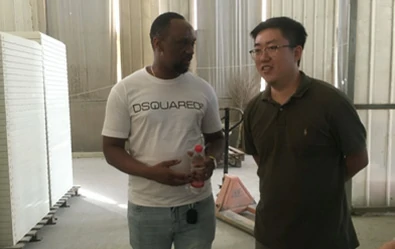loading...
- No. 9, Xingyuan South Street, Dongwaihuan Road, Zaoqiang County, Hengshui, Hebei, China
- admin@zjcomposites.com
- +86 15097380338
- Welcome to visit our website!
FRP Pressure Vessel Design and Applications in Modern Industry.
The use of Fiber Reinforced Polymer (FRP) materials in pressure vessels has gained significant attention in various industries due to their unique properties. FRP pressure vessels are composed of a polymer matrix reinforced with fibers such as glass, carbon, or aramid. This combination not only enhances the mechanical strength but also provides excellent resistance to corrosion, making them suitable for a wide range of applications.
One of the primary advantages of FRP pressure vessels is their lightweight nature. Compared to traditional metal vessels, FRP vessels are considerably lighter, which reduces transportation costs and simplifies installation. This characteristic is particularly beneficial in applications where weight constraints are critical, such as in aerospace, marine, and offshore industries.
.
The design flexibility of FRP also allows for the creation of custom shapes and sizes to meet specific requirements. Manufacturers can tailor the design to optimize the vessel's performance based on the intended application. Whether for storing chemicals, gases, or water, FRP vessels can be engineered to cope with varying pressures and operational conditions.
frp pressure vessel

Safety is a paramount concern in the design and use of pressure vessels. FRP materials offer significant advantages in terms of impact resistance and the ability to withstand sudden pressure fluctuations. Unlike metal vessels that can crack or rupture under stress, FRP vessels are less prone to catastrophic failures. This inherent safety feature is crucial in industries such as oil and gas, where the risks associated with pressure vessel failure can lead to severe consequences.
Moreover, the manufacturing processes for FRP vessels, such as filament winding and vacuum infusion, allow for consistent quality and performance. These processes not only ensure the strength and integrity of the vessels but also enable manufacturers to produce them efficiently, catering to the increasing demand in various sectors.
In conclusion, FRP pressure vessels represent a significant advancement in materials science, offering a range of benefits including lightweight, corrosion resistance, design flexibility, and enhanced safety. As industries continue to seek innovative solutions to their challenges, FRP pressure vessels are poised to play a crucial role in the future of engineering and materials technology. Their adaptability makes them ideal for diverse applications, driving progress across many sectors.
-
Transform Your Spaces with FRP Grating SolutionsNewsNov.04,2024
-
The Versatility and Strength of FRP RodsNewsNov.04,2024
-
The Excellence of Fiberglass Water TanksNewsNov.04,2024
-
The Benefits of FRP Grating for Your ProjectsNewsNov.04,2024
-
Elevate Your Efficiency with FRP Pressure VesselsNewsNov.04,2024
-
Welcome to the World of FRP Pressure VesselsNewsOct.12,2024
-
Unveiling the Future of Filtration: Why FRP Filter Vessels are a Game ChangerNewsOct.12,2024
